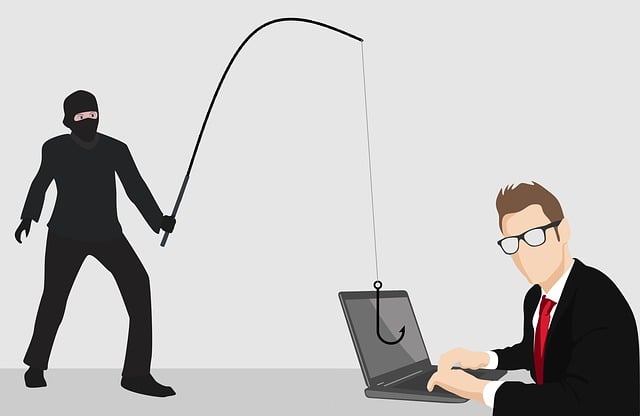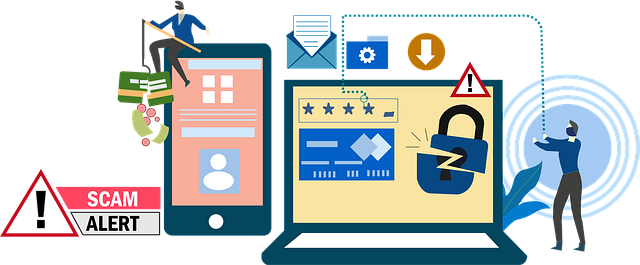Common Online And Facebook Scams In 2024 And How To Avoid Them – A Comprehensive Guide

The digital age comes with its own set of challenges with one of the biggest being online scams. Facebook, being one of the largest social media platforms, is not immune to these threats.
Scammers have become increasingly sophisticated in their methods, preying on unsuspecting individuals and exploiting their trust. There seems to be more and more of them online everyday.
In this comprehensive guide, we will explore common online and Facebook scams, how to avoid them and where to get help if you have been scammed.
Online and Facebook scams can include phishing, malware threats, fake profiles and identity theft. Be wary of Facebook listings like vehicles for sale or injured animal posts. Online shopping, charity or lottery scams can be a ruse to take your money.
Phishing Attacks
One of the most common online scams is “phishing”, a method in which scammers attempt to trick someone into revealing sensitive information such as usernames, passwords, and financial details.
The word comes from a derivation of “fishing” and indicates the scammers are fishing for personal information.
Facebook users are particularly susceptible to phishing attacks due to the platform’s massive user base and the personal information shared on profiles.

How to Recognise Phishing Attempts
- Be wary of random emails, messages, or friend requests, especially from unknown sources.
- Check for grammatical errors and unusual language in messages, as scammers often use poorly written and overly cheesy content.
- Hover over links to preview the actual URL before clicking to make sure they match the expected destination.
- Be cautious of urgent requests for personal or financial information, as scammers often create a sense of urgency to pressure their victims.
- Be careful of quizzes or online games that ask you to input your presonal information.
How to Avoid Phishing Scams
- Enable two-factor authentication on your accounts to add an extra layer of security. This is where you set up two levels of security to enter a site or platform, and potentially use either your mobile phone or another email address to verify that it is you.
- Educate yourself and your friends about common phishing tactics to raise awareness.
- Use reputable security software that can detect and block phishing attempts.
- Regularly update passwords and avoid using the same password across multiple accounts.

Fake Profiles and Identity Theft
Creating fake profiles is a common tactic used by scammers to impersonate individuals and manipulate their friends or connections.
On Facebook, identity theft can lead to various malicious activities, including spreading misinformation, engaging in fraudulent schemes, stealing money, or tarnishing the reputation of the impersonated person.
This can happen if you click on a harmful link on a Facebook post or a Facebook Message.
How to Spot Fake Profiles
- Examine the profile picture for signs of generic stock photos or inconsistencies.
- Check to see when they joined Facebook, this should be easily visible on the profile page – be wary of people who joined very recently, i.e. in the last week, month or even year.
- Check the timeline for unusual activity, such as sudden friend requests or spammy posts.
- Verify information with the supposed person through a trusted and separate means of communication.
How to Spot Fake Messages
- If you receive a message from someone unknown or even someone you do know that seems slighly off, do not click any links in that message.
- Be especially wary if the message is urgent, or wants you to click on something. An example of this could be the question “Is this you in this video?” or “Oh my god you will never guess who has just died!“
- Another red flag is if the person wants to continue the messaging privately (i.e off Facebook – either on Whatsapp or personal messages).
- Anything message, even from a friend, offering free money, investments or products via a particular scheme, especially cryptocurrency is probably a scam.
- Be suspicious of messages from friends or family asking for money urgently, always speak to them independently.
- Any message asking for your personal information should be treated with extreme caution.

Examples of Facebook Fake Profile Scams
1) Facebook Marketplace Courier Scam When Selling Goods
This happened to me a while ago, I was selling a TV cabinet on Facebook Marketplace and received an offer from a potential buyer.
Straight away I was suspicious as the profile picture was of a generic beach and the name was just one word. I think maybe this guy or girl was new to scamming. I clicked on his profile and saw that he/her had just joined Facebook the day before (I mean come on!)
They sent me a message saying they would use a DIE POST EXPRESS service who would collect the item once a bank transfer had been made to me. Immediately I cancelled the sale – but what is actually going on here?
- What would likely happen is that they would then message to say they have not yet made the payment but that the courier would bring the cash on collection.
- In order for the courier to carry cash, a small insurance payment would be needed (from me – the seller) which would be refunded.
- They would provide a link to the courier website (which would be fake) and ask me to enter my card details, which they would then use to take money from my account.

2) Facebook Injured Animal Scam
This is quite a new one that I have been seeing a lot of recently and it is one designed to appeal to the many people who want to help animals. Here’s how it works:
- You may see a facebook post from someone saying “I still haven’t managed to track down the owners of this lovely dog that we found injured last week (with a picture of an injured dog). Please share so we can get this pup back home.”
- Most people’s first instinct would be to share this on their page in the hope that the owner saw it, or that someone else would share on again and eventually help the poor dog.
- Now after some time has passed and this post is some way down on your feed, the original writer of the post would go back in, edit the post and change it to a different listing that links to a scam website or dodgy scheme. This post is then living happily on your feed and others, making it look as if you are promoting or validating the site.
3) Facebook Vehicle For Sale Scam
When looking for a new car, van or motorcycle, people will often check their local Facebook Marketplace listings in the hope of finding a bargain.
Unfortunately, Facebook has been absolutely flooded with fake or cloned profiles claiming to sell selling high end vehicles for cheap prices. Here’s how it works:
- A search for a car, van or bike may show multiple listings from what appear to be genuine people or car dealerships.
- The images look great, and the price will either be a little lower than expected, or ridiculously cheap. While researching this article I came across a Bentley for £7,600.00.
- The advert may ask you message or email for further information, and when you do you will receive a fairly professional looking message back with the vehicle details. Contained within this will be an offer to deliver the car to you for a small transport fee and insurance tax payment. You make the payment and then never hear from them again.
- We would always recommend Googling the telephone number of the car dealership and calling them to check the advert is genuine.
- If you are buying from a person, then always ask to see the car first and take it for a test drive.
If it looks too good to be true, it probably is!

4) Facebook Fake Work From Home Job Offers
As many people are now looking to work from home, scammers have capitalised on this by creating fake job listings that offer lots of money for working from home. Here’s how it works:
- You see a role advertised on Facebook for working from home with a really good wage.
- You click on the link and are asked you provide your personal information to apply for the job, this may include your bank details.
- There may be content designed to make you act quickly, such as an application closing date that is the next day.
- You are then asked to pay a fee to register with the recruitment company or agency.

5) Facebook Fake Charity Or Go Fund Me Posts
Raising money on Facebook is a common activity and many genuine charities are able to fundraise this way.
Unfortunately it is very easy to create a fake page or post that describes a person or animal in need, or a humanitarian cause that people want to help.
- Never donate money via social media unless you are 100% sure it is genuine.
- Legitimate charities will have their own website that you can Google or call to donate money to.
- If a friend of yours is running a Go Fund Me fundraiser, speak to them independently to make sure it is genuine before you donate.
How to Protect Against Identity Theft
- Adjust privacy settings on social media platforms to limit the visibility of personal information.
- Look out for people you are already friends with requesting to be friends again.
- Regularly review friend lists and remove unfamiliar or suspicious contacts.
- Report fake profiles to the platform to help prevent the spread of fraudulent accounts. You can do this by clicking under the profile cover photo and selecting the three dots, then select “Find support or report profile.”
- Don’t share posts on your feed or anyone else’s unless you are sure they are genuine.
- Regularly review your own feed to make sure all the content is correct and you remember posting it.
Online Shopping Scams
With the rise of e-commerce, online shopping scams have become more common.
Scammers often create fake online stores, enticing users with attractive deals and discounts to collect payment information without delivering the promised goods.
How to Identify Online Shopping Scams
- Research the website’s reputation by checking reviews and ratings from trusted sources.
- Look for secure payment options, such as HTTPS and recognisable payment gateways.
- Be cautious of deals that seem too good to be true, as scammers often use enticing offers to lure victims.

How to Safeguard Against Online Shopping Scams
- Purchase from reputable and well-known online retailers.
- Use credit cards for online transactions, as they offer additional layers of fraud protection.
- Keep track of your online purchases and verify transaction details regularly.
Lottery and Prize Scams: The Illusion of Winning
Lottery and prize scams capitalise on the allure of unexpected windfalls.
Scammers often inform individuals that they have won a lottery or prize, only to request personal information or payment for processing fees.
How to Detect Lottery and Prize Scams
- Be skeptical of unsolicited messages claiming you’ve won a prize, especially if you did not enter any contests.
- Verify the legitimacy of the lottery or prize by contacting the official organization directly.
- Avoid sharing personal or financial information with unknown entities.
- Conduct thorough research on the legitimacy of the contest or lottery before taking any action.
- Refrain from sending money or providing personal information to claim a prize.
- Educate friends and family about the common tactics employed by lottery and prize scammers.
Ransomware and Malware Threats
Ransomware and malware attacks are designed to compromise the security of computer systems, often leading to viruses and the encryption of files or the unauthorised access of sensitive information.
While these attacks may not directly target Facebook users, they can still impact individuals who use the platform for personal or business purposes.
- Be cautious when clicking on links or downloading attachments from unknown sources.
- Install reputable antivirus and anti-malware software to detect and prevent malicious software.
- Regularly update operating systems and software to patch vulnerabilities that may be exploited by attackers.
- Backup important data regularly and store it in a secure, offline location.
- Avoid downloading software or files from untrustworthy websites.
- Exercise caution when clicking on links, especially those received through email or social media messages.

What To Do if You Think You Have Been Scammed Online
Firstly contact your bank or card provider to see if they can stop the payment. Give them as much information as possible:
- What you gave them (passwords, account numbers/card details).
- The date and time it happened.
- The website or platform you were using.
- The amount you think you have lost.
If you have the option to freeze your bank card, consider doing this to prevent any further unauthorised use.
Keep an eye on your statement and report any further suspicious transactions.
Change any passwords or pin numbers you think may be compromised, and do this through the official provider website or app – do not click any links from suspicious emails.
Report the scam to the authorities – the Police, Action Fraud, Financial Conduct Authority (FCA), or Police Scotland if you live in Scotland.
You can report any scam post to Facebook themselves by clicking the three dots at the top right of any post and selecting Report Post. You can then explain why you are reporting it.
Try not to feel too foolish or embarrassed to report it. Being scammed can happen to anyone and reporting it is the best way to make others aware of the situation. It will give the authorities the information they need to close the website, ban the scammer from Facebook and prosecute.
If you feel depressed or anxious about what has happened, then talk to someone about it. Either a friend, a family member or a professional. Good options are the Samaritans or Citizen’s Advice.

Conclusion
As technology continues to advance, so do the methods employed by online scammers.
Staying vigilant and informed is crucial for protecting yourself and others from falling victim to these scams.
By understanding the common tactics used by scammers and being proactive about protecting both yours and others security, it is possible to stay one step ahead.
Be informed and wary. Have discussions with your friends and family, they may have heard of new and different scams. Share this article far and wide.

